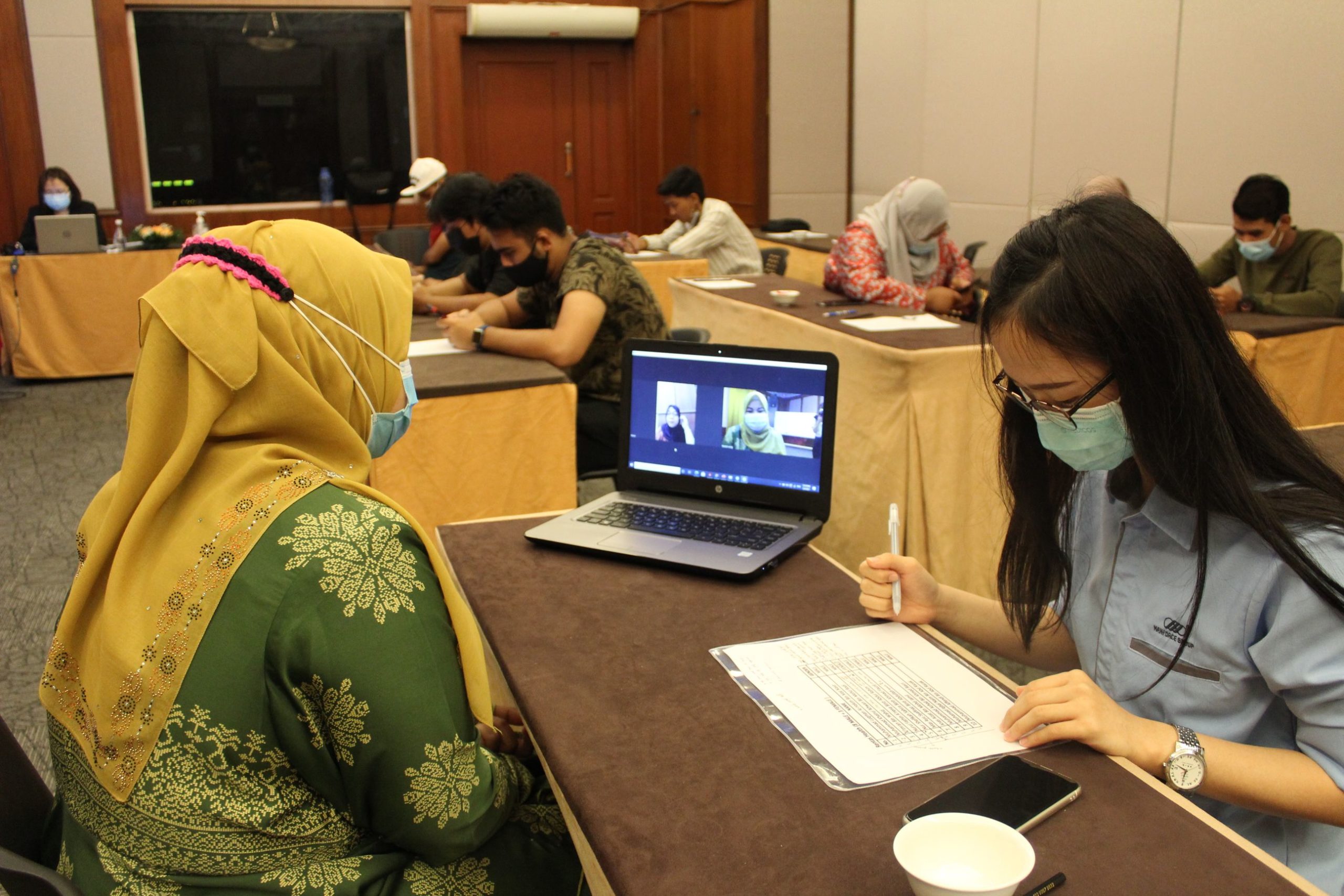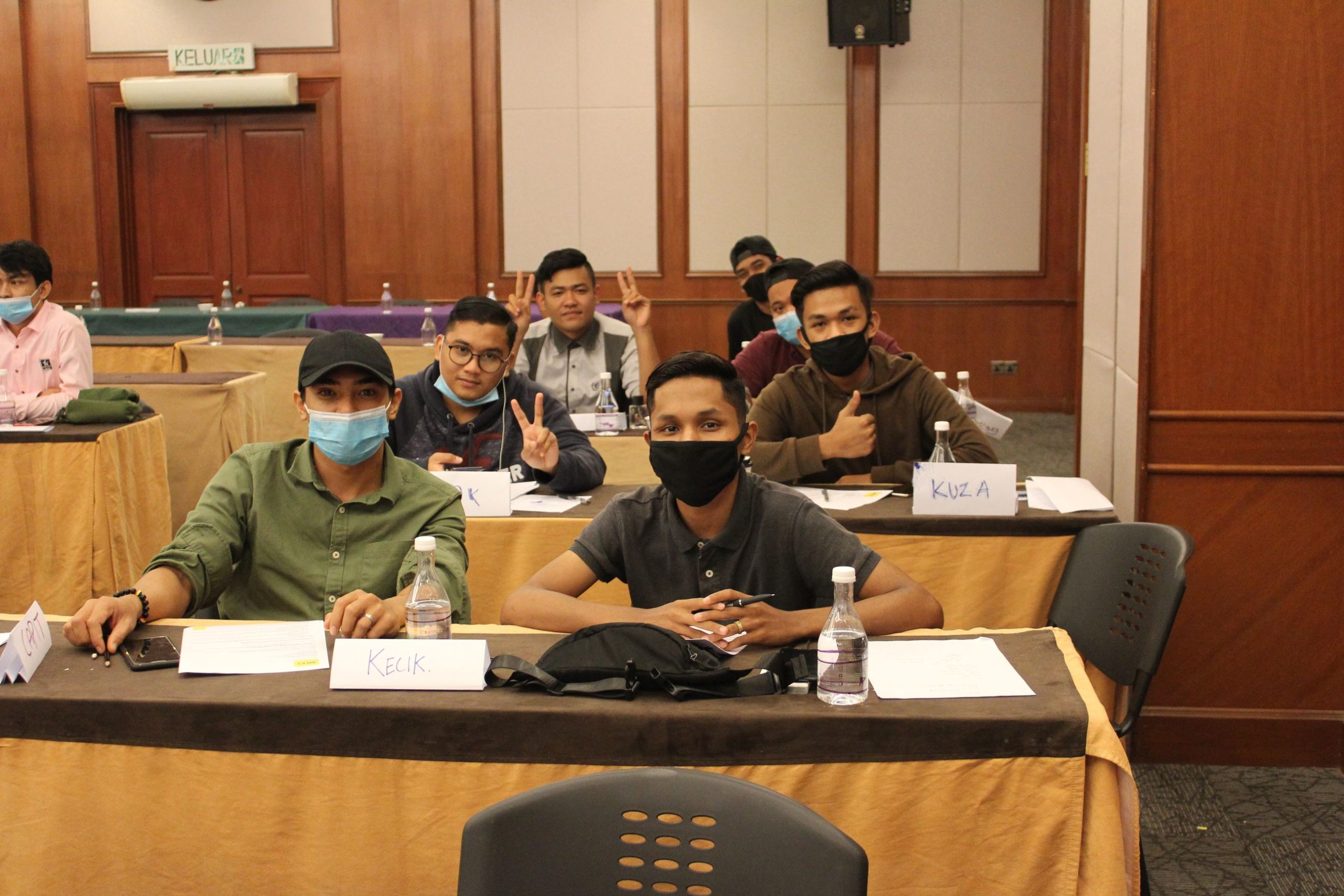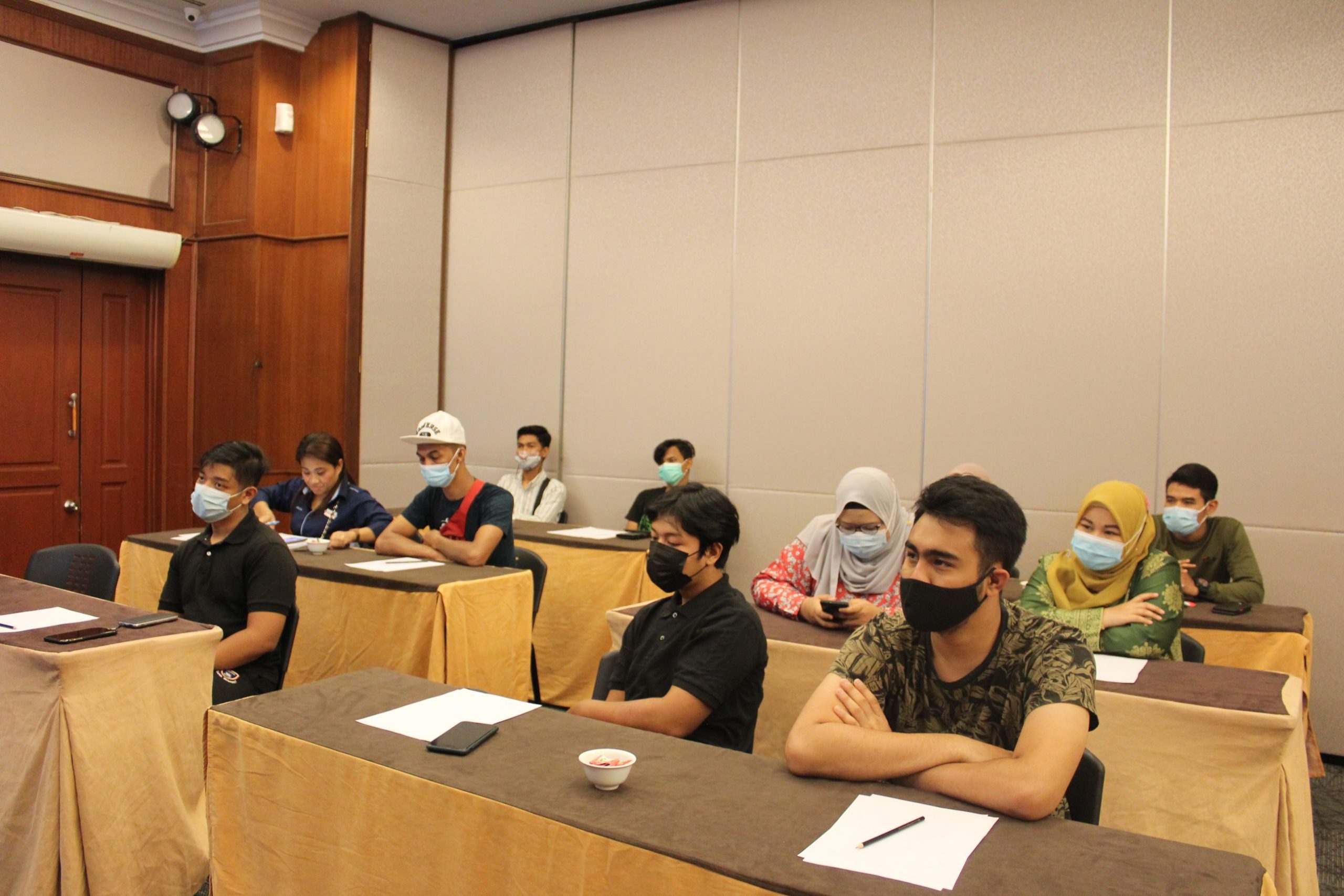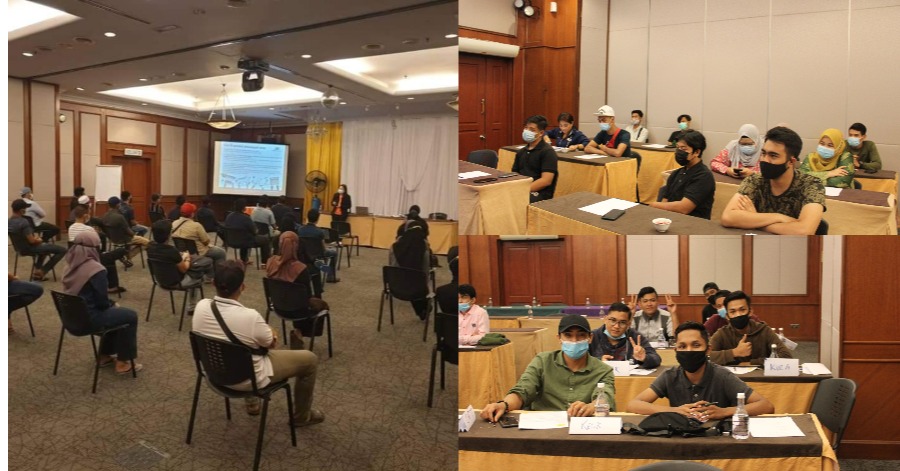For years now, youth unemployment has always been one of the global social issues that was (and still is) tough to overcome in Malaysia. In 2018, we saw unemployed youth graduates reach an immense number of 162,000 recorded by the Department of Statistics. Adding to the onslaught of the Covid-19 pandemic where we may see a more extreme rise of youth unemployment, this has exacerbated the level of difficulty in landing a job that will allow them to get a decent income, in turn causing an unprecedented economic downturn especially with the recent announcement of total lockdown in Malaysia – worsening the situation for all including employers.
While fresh graduates have it hard to find work these days, it is extra onerous for those who are more vulnerable or neglected – particularly individuals who were unable to complete their high school education due to financial struggles or the inability to complete their tertiary education.
Young people especially those from relatively low-income households or B40 families in Malaysia usually choose to drop out of school. According to a recent survey done by Manforce Group Berhad (a leading foreign worker solutions providers in Malaysia), 85.5% out of 404 participants aged between 18-34 lost interest in studies, while some thought that they could contribute substantially to the household instead of adding more burden to the family. However, what they never considered is that dropping out of school may cause them to face long odds of success in a labour market that increasingly values education and skills, which begs the questions: How will they acclimatise in the industry without relevant certificates and skills in the long-run? How can they possibly keep up with the “new normal” in a tough job market? Do early choices between work and school jeopardize their future economic well-being?
While fresh grads are still able to access networking sites easily to be more in touch with current news and job opportunities, not only are these neglected groups lacking the necessary skills and education to secure gainful employment, they do not have the privilege similar to fresh grads to have access to the job portals or even learn how to use them – causing these youths to miss out on opportunities that they could not have unlike their peers. Adding to that, some youths are not even able to get low-paying jobs as employers are more willing to hire foreigners because of their loyalty to the companies and some have hesitation of hiring locals as they have misgivings about Malaysian youths being “spoiled”.
Situation Analysis of Youth Unemployment in Malaysia
There are three main categories of unemployed youth: graduates, rural youth, and urban youth. According to a statistical analysis of adolescents in Malaysia conducted by UNICEF in 2019, the official youth unemployment rate (aged 15-24) is at 10.9%, more than three times the national average of 3.3%. Unemployed youth constitute almost 60% of the 504,000 that are currently unemployed. It is likely, however, that the true extent of youth employment is under-reported, given the restrictive definition used by the Government which does not include those who have not registered as ‘actively looking for work’. In many instances, governmental data are not broken down according to school dropouts, leaving them to be commonly categorised as the “forgotten groups”.
As mentioned above, the more vulnerable and neglected youths categorised under rural youth have it more difficult to land a job than a fresh graduate. Although many of the unemployment problems faced by urban youth also apply to those living in rural areas, rural youth face an additional set of barriers which can be attributed to their isolated location and the limited range of opportunities that are available to them.
This does not mean that they are not actively looking for any form of employment. Job opportunities in the rural areas are not to say the most attractive in terms of wages, and local employment in the area is only limited to farming or agricultural work most of the time. Because of this most rural youth leave this life to explore better job opportunities in the urban areas, however they may also face another set of problems as they would be clueless of where to look for these jobs since they are not accessible to most gateways on the Internet as compared to their more privileged peers, and even when they found it, it may be a wearying process to even confirm low-paying / entry-level jobs in factories or industrial companies as they are without the necessary skills to be employed for such occupation, or lacking the qualifications.
Malaysian employers are also more reliant in hiring foreign workers not only because they are more devoted to the work as compared to the local workers, but most Malaysian employers deemed local workers too demanding and unreliable, and may not have the drive similar to a foreign worker to want to “keep the job” and willing to adapt to the working conditions. This leaves quite a problematic gap between employers and local workers, one assuming that Malaysians do not entertain such work to afford a living, and the other not able to have the skills and qualifications needed. But how can the locals have the kind of qualifications and skills, if they do not know where and how to get it?
Because of this gap here, certain initiatives need to be put in place in order to close the gap of youth unemployment in the market and enhance skill training programmes to prepare the local workforce for this industry. According to Dato’ Paul Wong Boon Ming, Group Managing Director and Founder of Manforce Group Berhad, skills shortages will need to be addressed with solid enhanced skill training programmes as it will continue to be a challenge for industrial companies in Malaysia despite a rise in the number of jobseekers. This is mainly due to a persistent mismatch between the type of capabilities and skills needed by employers and what is currently available in the labour market.
“Education is often considered an important social mobility tool by educators as it can give young adults the skills to find meaningful employment and lift themselves out of poverty, however, whether or not these groups being given a second chance to upskill themselves still remain questionable. Their existence can’t be ignored as their input will somehow still be beneficial to the industry as a whole,” said Dato’ Paul.
The Department of Statistic Malaysia (DOSM) recorded that the number of unemployed graduates in 2019 was 170,300 persons. Active unemployed graduates accounted for 74.8% of the total unemployed graduates. On the other hand, the number of graduates outside the labour force (housewives, students, retired, etc) in 2019 was 869,800 persons, an increase of 7.6% as compared to the previous year.
But then again, we cannot entirely blame the job market scene itself, for most of the youth especially those in the urban areas are still rather demanding when it comes to salary and benefits that they feel they deserve to have, although they do not have prior or relevant experience, and are not capable of working long hours in the specific industry. Given this difficult time for all, especially with now becoming more of a challenge due to the number of daily infection cases and the implementation of total lockdown imposed nationwide, we need a “win-win” solution that can help both employers and youth (especially the forgotten groups: the drop-outs) in securing job opportunities. For those out there still struggling to look for that job to afford that income, these are some of the key things we need to always remember to overcome this troubling time in finding a job:
(1) Don’t be choosy with jobs, flexibility is the key
In critical times like this, it is important to keep an open mind and flexibility on the types of jobs that you are applying for. While job security is an important factor that you should look into when looking for employment, you need to understand that the economy is still volatile these days as companies are still struggling to cope with the new normal of running their businesses.
Don’t be too picky, as the negative attitude towards jobs you dislike may lead to further unemployment. Bear in mind that to be knowledgeable about one’s specific job and industry is crucial, but to have additional practical skills can add a plus value as an employee!

Candidates following the SOPs requiring social distancing seats during the briefing of Manforce Group’s Malaysians Development Uplift Programme (MDUP) in a conference hall.
(2) Practice your skills and continue learning
Like Steve Jobs said before, ‘stay hungry, stay foolish’. Developing a diverse skills set can expand your appeal to a larger number of employers. In response to the range of issues associated with dropping out of school, prevention and “second chance” programs have been developed to assist or reconnect this higher-risk youth population – at the same time ensuring that these young Malaysians fully understand and exceed the expectations of employers.

A tutor conducting a virtual interview with potential candidates for Manforce Group’s MDUP.
There are a number of programmes that individuals (be it if they are school leavers, unable to continue their studies due to lack of money, or unemployed / jobless) can explore to have their second chance. One such initiative that has been activated is Manforce Group’s Malaysians Development Uplift Programme (MDUP). This leading foreign worker solutions provider in Malaysia launched this programme in February 2020 as a solution for youth to further develop their skill-sets through basic industrial training which can improve the chances of being employed. As of March 2021, Manforce Group has successfully trained their first batch of graduates consisting of more than 70 individuals, with 70% of the graduates deciding to kickstart their career in manufacturing companies such as Maxter Glove, Panasonic, George Kent and among others, while the rest chose to further their studies.
(3) Motivation is the key to finding success
The key is to set up a solid target and understand what you want by focusing on the opportunities available for working and learning. Do not hold back and continue to motivate yourself to achieve new goals, you will eventually feel happier than you did before. Although success is the root of motivation, happiness is the underlying desire leading the motivation.

Candidates remain motivated in class despite the current uncertainties.
(4) Stay discipline when working remotely
The “new normal” means many companies recently extended remote work options for employees into 2021 and beyond. A lot of the hiring procedures happening right now are for remote jobs, or jobs that will at least need to be functioned remotely. However, with remote working, there needs to be a certain responsibility to adhere to in order for the employer to put their trust in you.

Candidates maintain discipline and responsibility in training classes.
With discipline as a significant characteristic for remote workers, while you may not have to deal with distractions related to coworkers and office politics, you are still exposed to their own set of unique diversions.
Though it is undeniable that those in vulnerable positions are rendered voiceless and powerless in some ways, nevertheless they should not be forsaken nor forgotten and be given another way out to reconnect back to the reality of the current job market as well, as proper solutions that suits them best will give them a pathway at a second chance in life.




Leave a Comment